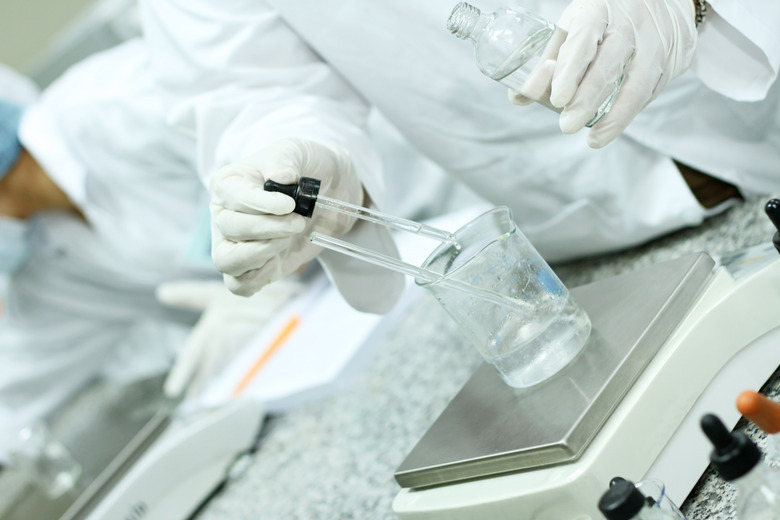Liters and kilograms are both important units of measure in the metric system and represent fundamental quantities in the SI (International System) units scheme. A liter is a unit of volume, or space. A kilogram is a unit of mass, representing a given quantity of matter.
The liter (L) is formally and historically linked to the kilogram (L). In 1901, the General Conference on Weights and Measures defined 1 liter (or litre, as it is sometimes spelled outside of the United States) as the volume of exactly 1 kilogram of water at room temperature.
The conversion from liters to kilograms would therefore be very simple if all substances were identical to water. Instead, liquids vary in their density, or the amount of mass per unit volume.
To find the mass in kilograms of a given volume of material, proceed as follows.
Step 1: Determine the Volume
If you do not know the volume of your liquid, you can measure it using a laboratory flask or beaker. Sometimes, however, you will get a container with a known volume of liquid in it, e.g., a one-liter bottle of milk.
Step 2: Look Up the Density
The density of a substance in SI units is its mass in kilograms divided by its volume in liters (kg/L), or equivalently, its mass in grams divided by is volume in cubic centimeters (g/cm3). You can find densities of common substances with ease online.
Step 3: Calculate the Mass
Now that you have volume in L and density in kg/L, you simply multiply these together to get the mass of the substance of interest.
For example, say you had a 500-mL container of milk. 500 mL is equal to 0.5 L. The density of milk, according to online tables, is about 1.030 kg/L (slightly more for whole milk, a little less for skim).
(0.5 L)(1.030 kg/L) = 0.515 kg

